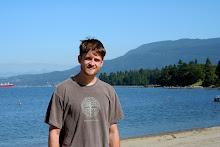The death and brutality behind the diamond markets in Sierra Leone (and elsewhere in Africa) have recently garnered their share of public attention. Rightly so: one can hardly hear the phrase “blood diamond” without conjuring vivid images of guns and machetes, red blood on dark skin, mud and murky water, and the silly translucent jewels that (presumably) sparked it all.
The events themselves are horrific. The vivid imagery is a godsend. Such colorful scenes are well suited, after all, to reinforce one salient fact: the price of a blood diamond is never its only – or even its greatest – cost. If the boast of the market economy is true – if the prize really goes to the one who pays the most – then "our" diamonds are not ours after all. The blood diamond belongs, instead, behind with the continent that birthed it: in the ravaged West African hillside; in the blood-palm of the murdered.
For decades, Wendell Berry has reminded us that all goods are blood-goods. Everything we purchase has already been bought through a long procession of transactions, both organic and “through blood.” As usual, Berry himself says it best. “The ‘free market’ … is bad for agriculture because it is unable to assign a value to things that are necessary to agriculture. It gives a value to agricultural products, but it cannot give a value to the sources of those products in the topsoil, in the ecosystem, the farm, the farm family, or the farm community” (Home Economics, 125-26, emphasis added).
When we buy into the “free market,” in other words, the price of a turnip may at first seem comprehensive. “$1.29/lb” on a cardboard sign may seem to say it all. From the produce section, in fact, the turnip may seem altogether devoid of biography. It exists, instead, “as is”: a product – produce – without a past. Pick it up, and you hardly feel the faint tingle of lingering pesticides. Sniff it, and the distant smell of fossil fuels wafts off, unnoticed, to mingle with products in the cereal aisle.
Granted, considering the juggernaut of our “free market” today, we might be tempted to concede defeat. After all, with “pastlessness” so pervasive in our daily exchange with stuff, have we any choice but hopeless complicity?
Not necessarily. The pastlessness of our produce is, after all, really just a well-crafted illusion, and this is why we so desperately need agri-biographers like Wendell Berry, Michael Pollan and Barbara Kingsolver to bring these pasts back into the light. We need – and we need to be – stuff-sleuths, truth-bound and tenacious. We need to know not only what our stuff is but where it came from, who it came from, how it got here, and how it came into being. The task, in fact, is not only possible, but necessary if we are to care for ourselves, our earth and our children.
“Eating is an agricultural act,” says Berry, and it’s a truth we can broaden to include all consumption. Another way of saying it: every purchase is political. Blood turnips or blood diamonds, it’s not enough just to wash our hands.
 Tomorrow, Jen and I leave on a plane out of Kansas City, bound for Vancouver, our old stomping grounds. Why Vancouver B.C.? Why now? Is it just that we love and miss this incredible city?
Tomorrow, Jen and I leave on a plane out of Kansas City, bound for Vancouver, our old stomping grounds. Why Vancouver B.C.? Why now? Is it just that we love and miss this incredible city?



